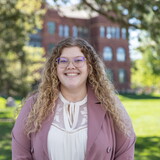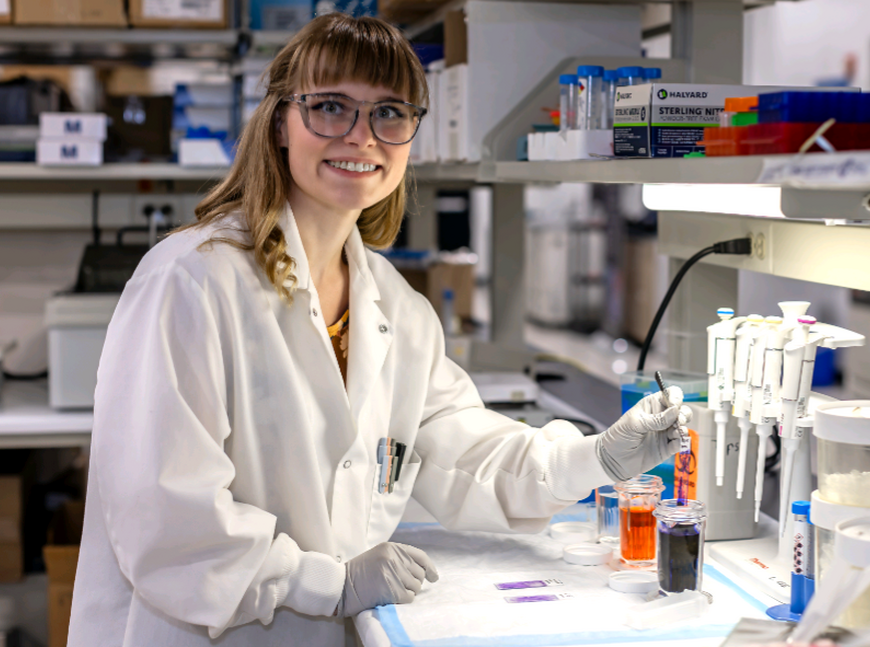Reese Wilcox (’24) has already achieved what few undergraduates do—co-author a research paper published in Scientific Reports.
"Being published as an undergraduate is a huge honor," Wilcox said. "It’s rare and will definitely strengthen my application to MD-PhD (physician-scientist) programs."
The Beatrice, Neb., native spent her summer in Sioux Falls, South Dakota, participating in the Sanford Program for Undergraduate Research. In Dr. Lance Lee’s lab, she contributed to pioneering work on primary ciliary dyskinesia (PCD), a rare genetic condition affecting 1 in 16,000 people.
PCD results from defects in motile cilia—hair-like structures responsible for clearing mucus and debris from the body—which can lead to chronic respiratory infections and progressive lung damage.
In addition to her assigned project, Wilcox took on an additional challenge: investigating an unidentified cell type discovered through single-cell RNA sequencing. Although the mystery remains unsolved, her work analyzing over 500 cell markers across 45 cell types advances the lab’s understanding of the airway’s cellular composition, a key step in developing diagnostic tools and treatments for PCD.
"During the first lab meeting, I became fascinated with this unknown cell type and asked if I could explore it," Wilcox said. "Even though I didn’t identify it, the experience taught me how crucial curiosity and persistence are in science."
Wilcox’s academic journey wasn’t without setbacks. During her sophomore year, she faced a medical withdrawal that left her uncertain about her future. "I didn’t know if I’d even graduate, let alone pursue my dream of becoming a doctor," she said.
Returning to NWU, she found encouragement and mentorship from Assistant Professor of Chemistry Kate Weskamp. "Her support was instrumental in getting me back on track. The close relationships students build with professors here are what make NWU truly special."
Wilcox graduated in December with a biochemistry and molecular biology degree and plans to pursue a dual degree program that trains students to become physician-scientists—doctors who specialize in research.
Explore the research here: https://doi.org/10.1038/s41598-024-79877-z










